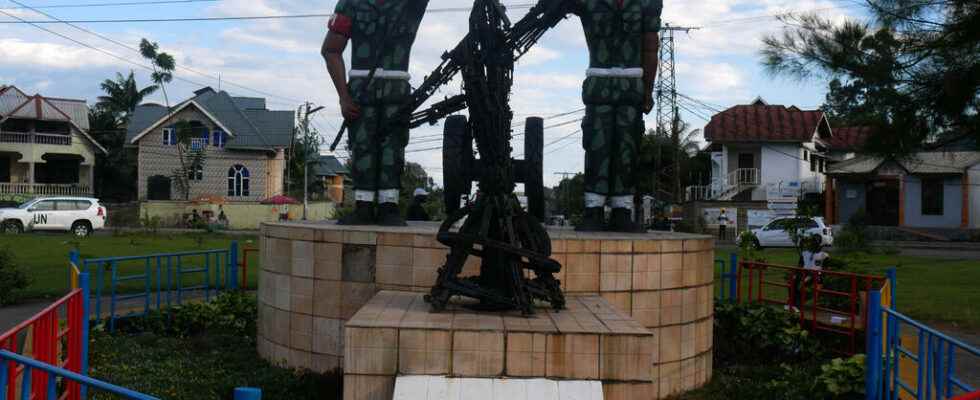A year ago today, on May 6, 2021, two provinces in the east of the Democratic Republic of the Congo were placed under a state of siege. This is to secure and put an end to the hundred armed groups that have been sowing terror in the region for more than 25 years. A year after the establishment of this exceptional security regime which gives full powers to the military, the population and civil society of North Kivu and Ituri are still awaiting the results.
With our special correspondent in Goma, Coralie Pierret
In the center of the roundabout of the sports circle of Goma, sits a new sign: ” Thanks state of siege for safety “, Can we read under a statue to the glory of the Congolese army. If the armed groups’ capacity for harm is reduced, according to the FARDC, in the streets the population has not yet celebrated great military victoriesis astonished an opponent of the state of siege.
” Under the operational plan, we see nothing, since there is no offensive carried out on the ground by our armed forcesexplains this opponent, now in exile. And one wonders why the army only plays defensive. »
Since a year, the military also governs civilian life in the two provinces under siege. A sometimes haphazard management, denounces Placide Nzilamba, from civil society in North Kivu:
” They found themselves with great power without being prepared. The soldiers understand that this is their opportunity to do what they want, an opportunity to get rich, an opportunity to make the population more vulnerable. »
Several citizen associations are calling for the lifting of this exceptional security regime.
Because today, the balance sheet of this security regime is also mixed: in the last 12 months, there were twice as many civilians killed as in the previous 12 months. That is a total of more than 2,500 victims, specifies Reagan Miviri, researcher at Ebuteli, a Congolese research institute.
Despite the state of siege, “there has been no drop in violence” and “the army has failed”, according to Reagan Miviri, researcher at Ebuteli
